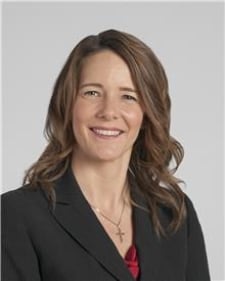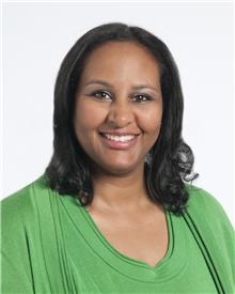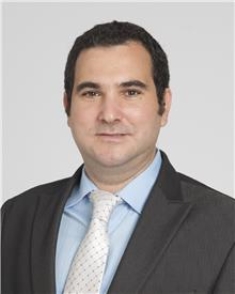Simulation Research Fellowship
This is a two-year, project-based, longitudinal experience focused on developing excellence in the areas of teaching, assessment, curriculum development, and simulation research.
This fellowship is designed to enhance the participant's expertise in education and research related to simulation. Participants will have the opportunity to examine theory that supports best practice, design and conduct a research study, and create a manuscipt suitable for publication. The Simulation Research Fellowship Director will provide guidance in research design and technical writing throughout the process and assist the fellow with his/her research project.
The research fellowship program is funded as a 10% commitment (0.1 FTE; 4 hrs/week for 104 weeks). Funding for fellows who are employees of Cleveland Clinic is provided by the Education Institute (through inter-institute transfer).
Qualifications
Applicants should be full time CCF employees, hold a nursing or medical degree equivalent to the RN, NP, CNM, MD, DO degrees awarded in the U.S., or other allied health profession degrees, with a minimum of two years in clinical practice and high motivation to pursue advanced training in simulation-based healthcare education and research.
Upon completion of the Simulation Research Fellowship the applicant will have developed and implemented a simulation curriculum, completed a simulation based research project, and submitted a manuscript for publication in a peer-reviewed medical journal.
Goals
1. To acquire an understanding of the administrative and operational aspects of leading and managing a simulation center.
2. To become familiar with key processes in educational quality assurance and accreditation requirements for a simulation center.
3. To understand and apply the different types of simulation technology.
4. To understand theoretical framework of simulation-based medical education and gain proficiency in curriculum design as it relates to simulation in healthcare. The specific goal will be to design and coduct an education event using simulation, including a debriefing session.
5. To understand the theoretical framework of simulation-based medical research and gain proficiency in research design including development of a study idea, literature review, design of experiments, basic statistics and technical writing. The specific goal will be to design and conduct a research project using simulation and prepare a manuscript suitable for publication.
Curriculum
-
Required Sessions
-
“Make Your Teaching Interactive” (Gagne) module - Essentials on Demand series
-
Four other CORE sessions of your choice (see sessions marked “CORE” in the schedule)
-
Consult with your fellowship mentor to select the most appropriate sessions
-
A digital version of the Essentials Participation Certificate will be sent upon completion of the requirements
1. General Topics
a. Simulation center organization and operation
i. Regular attendance at SASC board meetings
ii. Scheduled meetings with SASC personnel for orientation to administration, finance, nursing, education, and simulation technicians
b. Quality and accreditation
i. Become familiar with simulation center quality metrics and criteria for ongoing criteria for ongoing academic accreditation
c. Technology
i. Learn how to use high-fidelity human patient simulators, partial task simulators, computer-based simulation technologies
2. Education Topics
a. Complete the three-day Simulation and Advanced Skills Center Faculty Development Program
b. Meet all requirements for the Certificate of Participation – Essentials Program for Health Professions Education
i. Essentials Program participants who have attended at least
one mini retreat and
eight sessions are eligible to participate in the DE Level 1 Program
ii. For more information visit the Distinguished Educator page
here
c. Simulation project (from idea to evaluation)
i. Develop a curriculum for a specific simulation education project
ii. Lead a simulation program for the project to teach a group of learners
iii. Become knowledgeable in the fundamentals of debriefing
d. Presentations
i. Fellows are expected to present at the Education Group meeting in February/March of their fellowship year (midpoint presentation).
ii. Fellows are expected to present a summary of their project during Education Institute Grand Rounds in September/October after other fellowship requirements have been met.
e. Fellows are encouraged to attend at least one national simulation conference, such as the International Meeting on Simulation in Healthcare. Travel expenses will be funded by the Education Institute (subject to availability of funds, with priority given to accepted presentations).
3. Research Topics
a. Complete online course in MyLearning: Introduction to Health Care Research
b. Design a research project involving simulation (may be a bench study or a simulation training study)
i. Write a formal research protocol
ii. If the project involves human subjects, obtain required approvals, including Institutional Review Board review
iii. Conduct the study, collect and analyze the data
c. Write a formal research manuscript, suitable for publication, using the guidelines for authors from one of the major peer-reviewed medical journals
i. Submit the manuscript for review and possible publication in a peer-reviewed medical journals
Application
Applicants must complete an application that clearly describes the proposed fellowship simulation training project and research project, both endorsed by their department leadership. Projects must address a need amenable to using simulation as an educational tool, and must be aimed towards health professional students, residents, fellows, and/or practicing clinicians. The education and research projects may focus on one or more of the following areas that are amenable to using simulation:
-
Faculty development
-
Curriculum development
-
Educational research
-
Learner assessment
-
Program evaluation
-
Computer-based education/informatics
-
Device or procedure evaluation using software-based simulators or hardware-based high-fidelity human simulators
Other areas are possible as advised by the simulation fellowship director.
Applicants should submit the following to the Simulation and Advanced Skills Center by the application deadline:
-
Cover letter (including educational achievements and career goals)
-
Current CV
-
Structured, brief Education Project proposal (maximum five pages), including: title, aims/objectives, methods, supporting literature, plan for evaluation of outcomes, and plan to continue simulation educational activities after the fellowship
-
Structured, brief Research Project proposal (maximum five pages), including: title, study purpose, hypotheses (if applicable), methods, supporting literature, and proposed journal for submission.
-
Letter of support from applicant's department and institute chairs, specifically stating the department's commitment to the proposed fellowship application and that the appropriate time will be made available to the applicant to accomplish his/her fellowship goals and planned project. Nursing and allied health candidates should have letters of support from their Department manager endorsed by Chief Nursing Officer or Institute Chair.
Materials should be sent to the Director of Research Simulation Fellowship (Prof. Robert Chatburn)
chatbur@ccf.org.
Previous Simulation Research Fellows

Dr. Darlene Lobel
2016
Optimization of simulation based and live surgical training in neurosurgery
.aspx)
Dr. Ibrahim Sammour
2017
Simulation-based teaching of neonatal mechanical ventilation, and evaluation of ventilator breath delivery mechanics in a BPD lung model
.aspx)
Dr. Nirosshan Thiruchelvam
2018
Simulation vs Traditional Training on Mechanical Ventilation for Medical Residents
Current Simulation Research Fellows

Dr. Sofya Asfaw
2019
In-Situ Simulation for Multidisciplinary Education and Preparedness in Trauma

Dr. Mohamad Chaaban
2020
Developing a structured endoscopic sinus and skull based surgery curriculum using 3D printing and augmented reality technology